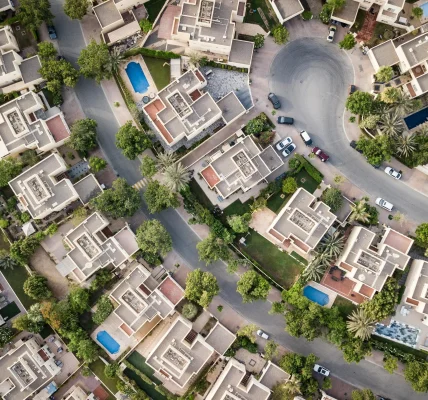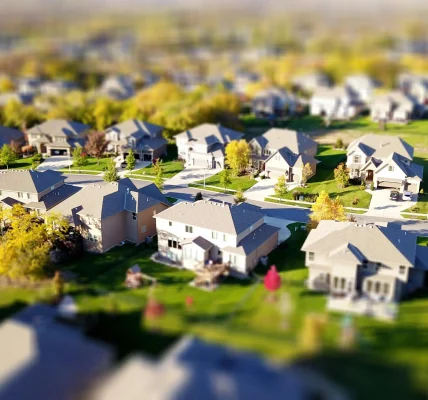Smart home technology reinvented the wheel of living by embedding convenience, security, and energy efficiency into every touch on the screen. Besides making life easier, these innovations have increasingly influenced real estate markets. First, smart features are on the wish lists of buyers; property sellers have also leveraged this trend to hike values and hasten sales. It has shown how smart home technology has changed the dynamics of the property market, how smart homes affect the value of houses, and all a buyer should know and vice versa.
1. What Is Smart Home Technology?
It would, therefore, imply that the technology incorporates into the devices and systems those that can perform functions of the home automatically or remotely to a great degree with one central app, or even through the use of voice assistants. Common features for smart homes include:
Smart Security Systems: Web cameras, doorbells, remotely controlled observable locks.
Smart Thermoregulators: Devices learning your habits and optimizing heating and cooling in the most energy-saving way.
Smart Lighting: According to daytime, lights on or dimmed in a particular room in case somebody is there and vice versa.
Smart Appliances: Refrigerators, ovens, washing machines could be operated with the help of applications.
2. The Growing Demand for Smart Homes
As the technology got better and continued to become more accessible, smart homes found themselves growing in popularity. Today, buyers seek property with smart devices installed, and in return, the demand dictates how real estate functions in several ways. Probably the smallest appeal that any smart home seller will find is with the technology-savvy buyer. These will mainly consist of Millennials and Generation Z, simply because such generations have grown up with this aspect of technology. Convenience and connectivity make for huge selling factors among these groups.
Energy Efficiency: The ever-growing energy costs and concern for ecology make the energy-saving intelligent devices hot favorites amongst the probable clients. Starting from accommodations in smart thermostats to lighting efficiency, the utility bills come out to be very low, hence attracting eco-conscious buyers.
Smart Security Families Love: Nothing gives a family, especially with children, more assurance than knowing their house is safe. This probably explains why houses that have smart security systems have more features in listings, especially in areas where safety is an issue.
3. How Smart Home Technology Impacts Property Value
Smart technologies impinge on immediate value, thereby making it more competitive and high in value on the market. It gives the perception of modernity and hence luxury in embedding smart features into an older property. This may even further have higher perceived value in such a way that the buyers would be willing to pay out more for modern conveniences. Houses with integrated smart systems appreciate usually higher. They are just upgrades of features, just in the case of renovating a kitchen or bathroom. A few smart technologies actually pay back through return on investment. Where generally setting a few hundred dollars back, this kind of technology with a smart thermostat can make a house appreciate for several thousand dollars because of its capability to save energy.
4. Impact on Sale of Property
Besides adding value to a property per se, smart home technology influences speed to sale of property.
Sell Faster: Smart homes usually spend less time on the market. This is majorly because such an upgrade in property is in demand and, therefore, buyers are always in a rush to close this as soon as possible.
Competitive Advantage in the Market: It’s smart technologies that give an edge in highly inventoried markets. There will be some features that will look minute enough to trigger more clientele and competition.
Higher Offers: Properties with smart home features attract higher offers, as the value addition because of such technologies assures the buyer of saving at once from the headache and expense of an after-installation exercise.
5. Key Smart Features That Boost Property Value
Not all smart home technologies are created equal when it comes to adding value to a property. The following are some of the in-demand features:
Smart Security Systems: Indeed, some of the most wanted features are those of security. They range from video doorbells, smart locks to cameras, which can be both indoor and outdoor. Sure enough, they will enhance security and give one his peace of mind; hence, very attractive to buyers.
Smart Lighting Systems: Automation that actually adjusts with time or, again, occupancy for energy savings, offering a touch of living standards and convenience.
Integrated Home Automation Systems: There is value in having a central operating system run everything from lights and thermostats to security-all on one single platform. Customers will be impressed not just by the integration but also at how seamless the usability will be.
Smart Appliances: High-tech refrigerators, ovens, and washers attract buyers looking for modern conveniences and are willing to pay more for those kinds of appliances.
6. Adoption Barrier Factors and Considerations for Sellers
Not withstanding manifold advantages ushered in with smart technology, of course, challenges and considerations from his seller’s point of view do exist, such as:
Installation and Maintenance Cost: The sophisticated gadgets have very expensive installation costs. He has to balance the initial investment against whatever added value may come from installing the gadgets in the property.
Incompatibility Issues: Not all gadgets will be compatible with other gadgets. Fragmentation in the system is surely going to annoy a potential buyer- something very important when investing in a cohesive setup.
Privacy: Because most are set up to record audio or video by default, some may challenge it on privacy grounds. The manufacturer shall be very candid regarding what really happens to the collected data and give customers the option to factory reset upon purchase.
Obsolescence of Technology: With each day the world of technology changes, and the most advanced gadgets used today get obsolete within a couple of years. This is an investment made in smart homes that its seller cannot afford to forget lives for how long.
7. Future of Smart Home Technology and Real Estate
It’s a growing technology base that is going to continue growing. There are a few trends that shape its future impact on real estate, including the following:
Smarter Standardization: Today, smart base features are just as standard in new builds as central air conditioning.
Integration of Solar Panel and Battery: Smart systems integrated with renewable sources, such as solar panels and a battery, will become the biggest selling point in the near future, with energy independence at the top.
Voice and AI Integration: Voice commands and AI-driven automation will drive smart homes toward proactive applications that can predict user needs, making life more convenient and property more appealing in the near future.
Smart Neighborhoods: Whole communities are able to get into smart technologies by offering services on a shared basis relating to smart streetlighting, security, and energy management. It will bring into place an ecosystem that values property at a communal level.


